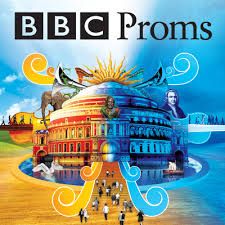 United Kingdom Prom 6. Poulenc, Stravinsky, Haydn, Mozart: James O’Donnell (organ), BBC National Chorus of Wales, BBC National Orchestra of Wales/Thomas Søndergård (conductor), Royal Albert Hall, London, 21.7.2015 (AS)
United Kingdom Prom 6. Poulenc, Stravinsky, Haydn, Mozart: James O’Donnell (organ), BBC National Chorus of Wales, BBC National Orchestra of Wales/Thomas Søndergård (conductor), Royal Albert Hall, London, 21.7.2015 (AS)
Poulenc: Concerto for organ, strings and timpani in G minor
Stravinsky: Symphony of Psalms
Haydn: Te Deum in C, Hob.XXIIIc:2
Mozart: Symphony No. 41 in C, K551, Jupiter
Even to those audience members familiar with the loud organ chord that begins Poulenc’s concerto, the volume of sound produced by the Albert Hall instrument will have come as a surprise. Arresting though it was, it did not augur well for the performance as a whole. This was one of those cases where listeners to the live Radio 3 relay probably had a better deal than those in the hall itself, since the BBC engineers will have contrived a satisfactory balance between organ and orchestra. Though it is a highly accomplished ensemble the BBCNOW’s string section is numerically less than that of a full symphony orchestra, and it is not exactly opulent tonally. For those of us in the hall there were too many passages when the organ drowned out important orchestral detail. This was a pity, since from what one could hear, it was a very lively and efficient performance on the part of Søndergård and his players.
James O’Donnell, who is Organist and Master of the Choristers at Westminster Abbey, played this concerto in the Royal Festival Hall with the London Philharmonic Orchestra under Yannick Nézet-Séguin in March of last year. On that occasion, the hall balance between organ and orchestra was much better (this performance has been released on the LPO’s own label – review). The new performance was very similar to that of 2014. O’Donnell responded generously to the concerto’s nobler elements and he relayed its more tongue-in-cheek episodes spiritedly but without vulgarity.
Stravinsky’s Symphony of Psalms proved to be an apt first half concert companion for Poulenc, for the juxtaposition of works showed how much the French composer was influenced by the older Russian. Søndergård’s tempo for the opening Psalm 38 of the Stravinsky was a little quicker than we are used to, but this proved to be very effective, especially as the excellent chorus produced precise, sharply accented singing. By contrast, the conductor allowed the double fugue for the central Psalm 39 to unfold unhurriedly, to potent effect. Stravinsky’s own performances of the end section of the final “Alleluia” became slower over the years, but Søndergård’s more gently flowing tempo suggested that the composer’s first thoughts were better. It was a quietly fervent and very moving end to the performance. If only the potent atmosphere generated had been allowed to exist a few moments more, but premature applause soon put an end to that.
Haydn’s music was inexplicably excluded from the 2013 and 2014 Prom seasons but is making a bit of a comeback this year. It was thus very good to hear his Te Deum, a characteristic work of the composer’s maturity and performed here with energy and enthusiasm by both choir and orchestra.
In the Jupiter Symphony Søndergård thankfully eschewed modern trends towards fast, hard-driven performances of Mozart’s major works. His tempo for the first movement was lively, but it was one that allowed the music to breathe naturally and the phrasing had elegance and warmth of expression. The exposition repeat was taken, and in fact throughout the work repeats indications were observed. The Andante was taken at the slow tempo that was the norm maybe half a century ago but certainly not now, yet Søndergård moulded the long phrases easily and naturally. The conductor’s precise one- in-a-bar beat for the minuet and trio ensured rhythmic buoyancy, and in the finale he drove the music quite hard while managing to bring out at least some of the movement’s structural complexities. It wasn’t a profound Mozart experience, but it was enjoyable and satisfying at its own level.
Alan Sanders

